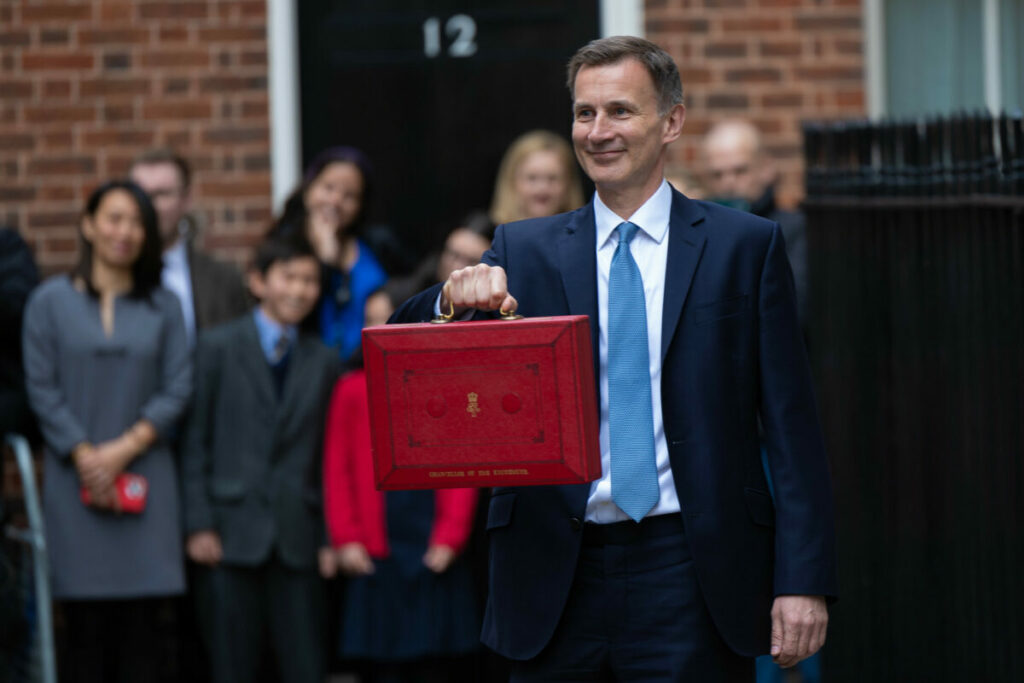Following the early announcement of the extension of the Energy Price Guarantee (EPG) at the current rate of £,2500 for three months, there were a few additional energy focused elements to the Spring Budget.
Addressing the House of Commons today, Chancellor Jeremy Hunt set out plans to limit inflation through the reduction of domestic energy bills, moves to tackle pre-payment meter (PPM) penalties, support for nuclear and investment in carbon capture, utilisation and storage (CCUS).
“The transition to net zero is essential to long-term prosperity. The UK welcomes decisive international action to tackle climate change and has a world leading track record in reducing emissions, innovating in green technologies, and mobilising finance for the transition,” stated the Spring Budget.
“In addition to the measures in the Spring Budget, the government will set out further action later this month to ensure energy security in the UK and meet our net zero commitments.
Tackling inflation using the EPG
The Spring Budget made clear that inflation peaked in October 2022 at 11.1% – the highest level in 40 years – and subsequently fell to 10.1% in January 2023.
Wholesale energy prices falling to a forecast level of £1.50 per therm in 2023, down from £3.40 per therm as assumed in the November 2022, has been a considerable driver of this drop.
Despite the drop in wholesale prices, domestic power prices have remained high. The Default Tariff Price Cap is set to fall from £4,279 in the first three months of 2023, to £3,280 for April to June. However, this remains exceptionally high, stretching people during the cost of living crisis and pushing people into fuel stress.
As such, the government has extended the EPG at its current rate of £2,500 until July, u-turning on the previous decision to increase it to £3,000 from April. The EPG supersedes the Price Cap, helping to limit domestic energy bills whilst the drop in wholesale power prices starts to impact bills.
“We know people are worried about their bills rising in April, so to give people some peace of mind, we’re keeping the Energy Price Guarantee at its current level until the summer when gas prices are expected to fall,” said Prime Minister Rishi Sunak.
“Continuing to hold down energy bills is part of our plan to help hardworking families with the cost of living and halve inflation this year.”
Energy UK’s CEO @ELPinchbeck responds to the Chancellor’s announcements at the #SpringStatement.
— Energy UK (@EnergyUKcomms) March 15, 2023
Learn more about our response to the EPG freeze, the future of UK #energy supply and more below 🧵👇…
… or click to see our full statement here 🔗https://t.co/5g9FHnmq8R pic.twitter.com/w9U5J84I4v
Pre-payment meters: Removing the premium
The Spring Budget announced that the government will remove the premium paid by over four million households that use PPMs, in order to bring the charges in line with comparable direct debit customers until the EPG ends. This is expected to save them an average of £45 per year.
PPM customers are disproportionately vulnerable, and often are lower income households or those in fuel poverty, and therefore more exposed to price changes.
The government noted that it supports Ofgem’s ongoing work to review PPM costs, asking the regulator for a report on additional regulatory options by autumn, including options for ending the PPM standing charge premium. This would allow implementation of changes by April 2024.
“The government continues to develop options to support domestic consumers on a non-domestic meter where they are facing lower levels of support than other domestic consumers. The Department for Energy Security and Net Zero will issue a call for evidence before the summer for domestic consumers who receive their energy via a non-domestic energy contract,” states the Spring Budget.
Pressure has been growing in Britain to tackle inequality between PPMs and direct debit tariffs. This includes Ofgem and Citizens Advice jointly launching a national evidence-call asking energy customers to share their experiences of transitioning to a PPM earlier this week.
Nuclear: Targeting SMRs for energy security
Support for the nuclear power sector was announced within the Spring Budget, in particular for Small Modular Reactors (SMRs). The Government is launching Great British Nuclear (GBN) to help address constraints in the market, supporting new nuclear builds to aid net zero.
“The invasion of Ukraine has highlighted the need for energy security. Clean energy will be vital for both our security and net zero goals, and presents an opportunity for growth. The government is therefore boosting longer-term public and private investment to ensure the country’s energy system is secure and clean, and to help meet the government’s 2050 net zero commitment,” says the Spring Budget.
GBN will launch a staged competition for SMRs, designed to attract the best designs from both domestic and international vendors. The government will then look to select the leading technologies to bring forwards into demonstration stages by the end of the year.
This follows the government announcing a £3.3 million funding boost in September designed to support the development of an advanced modular reactor (AMR) as the need for stable, low carbon generation to support variable renewables grows.
Beyond the initial focus on SMRs, GBN will also look to further large gigawatt-scale projects. The UK’s fleet of nuclear power stations has dwindled in recent years, with just one new site under construction, EDF’s Hinkley Point C.
Nuclear energy will also be included in the green taxonomy going forwards, the Spring Budget announced, subject to consultation to encourage private investment.
CCUS: ‘Unprecedented’ levels of funding
The government has announced £20 billion in funding for early deployment of CCUS. This ‘unprecedented level of funding for the sector’ is designed to unlock private investment and create jobs across the UK, especially in the East Coast and in the North West of England and North Wales.
Additionally, it is designed to kick-start the delivery of subsequent phases of new sustainable industries.
Later in March, a shortlist of projects for the first phase of CCUS deployment will be announced. Following this, further projects will be able to enter a selection process for Track 1, and two additional clusters will be selected through a Track 2 process. Further details will be announced shortly, the government stated.
This builds on £5 million of funding announced to support CCUS technologies under the ACT 3 scheme in April 2022. This is an international scheme, which involves 14 countries working together to fund CCUS research and innovation projects to help bring the technology to commercialisation.
The rest…
Beyond these core elements, there was little of significance to the energy sector within the Spring Budget.
It did include a pledge to support energy efficiency, with the government extending the Climate Change Agreement scheme for a further two years.
Perhaps the most meaningful move is 100% capital allowances, which many will have missed I suspect.
— Chris Stark (@ChiefExecCCC) March 15, 2023
Expensing capex should really improve the economics of all sorts of Net Zero projects (typically high capex, followed by opex savings).
The offshore wind sector will be pleased.
Finally, the government is to provide domestic UK Heat Network customers on non-domestic heating contracts with a new, sector specific support rate. This will be set to ensure customers do not face disproportionately higher energy bills under the Energy Bills Discount Scheme than consumers under the EPG.





